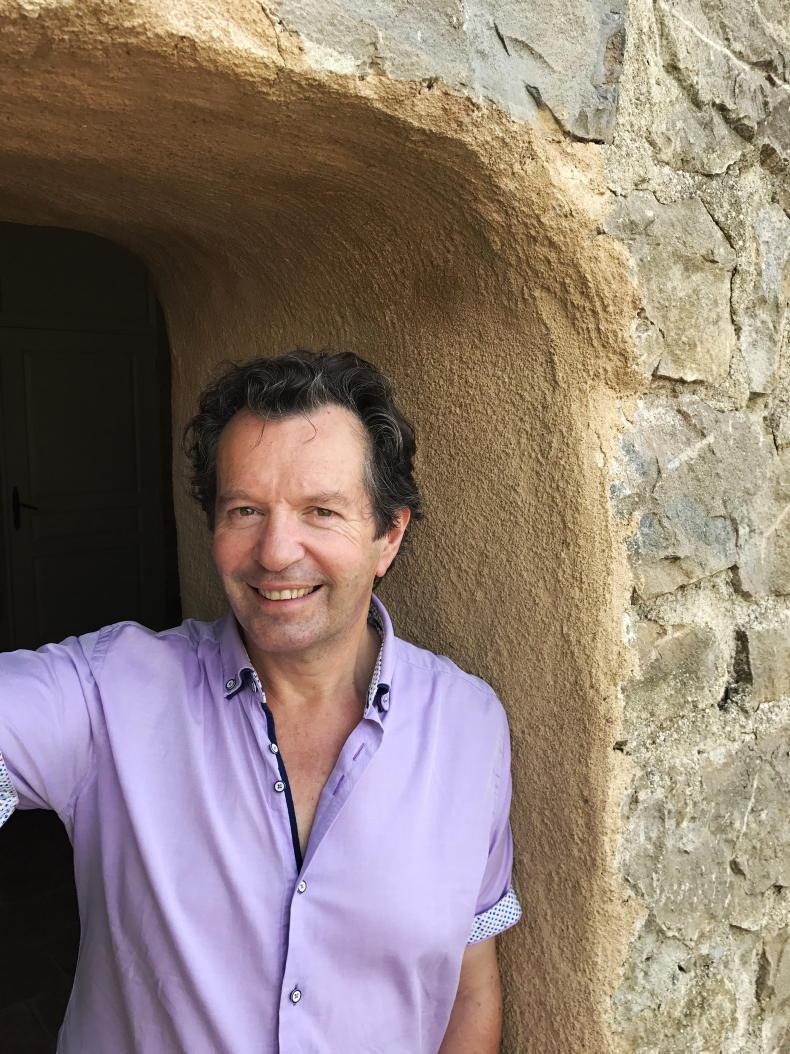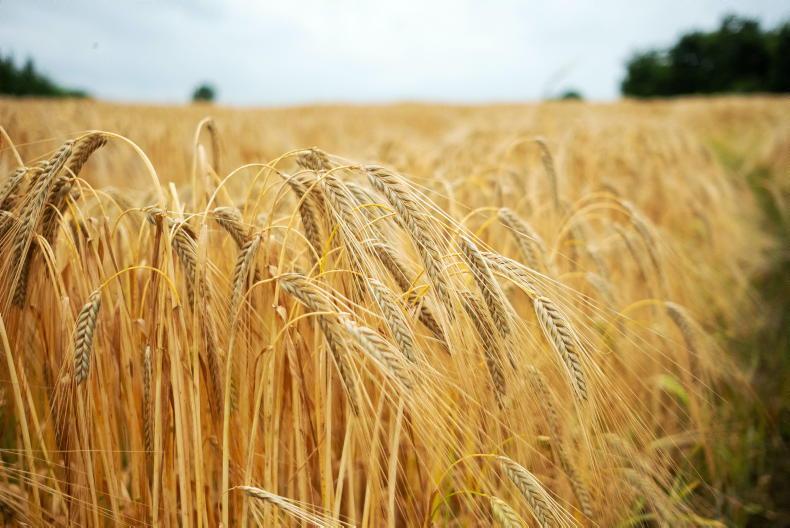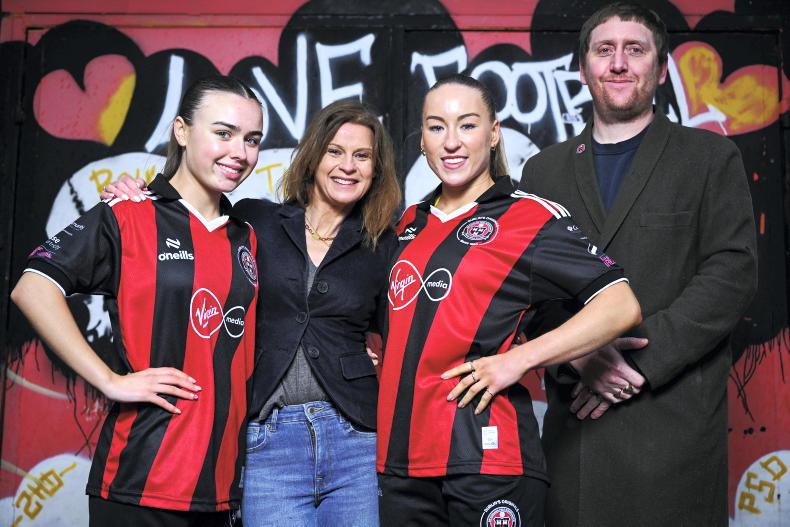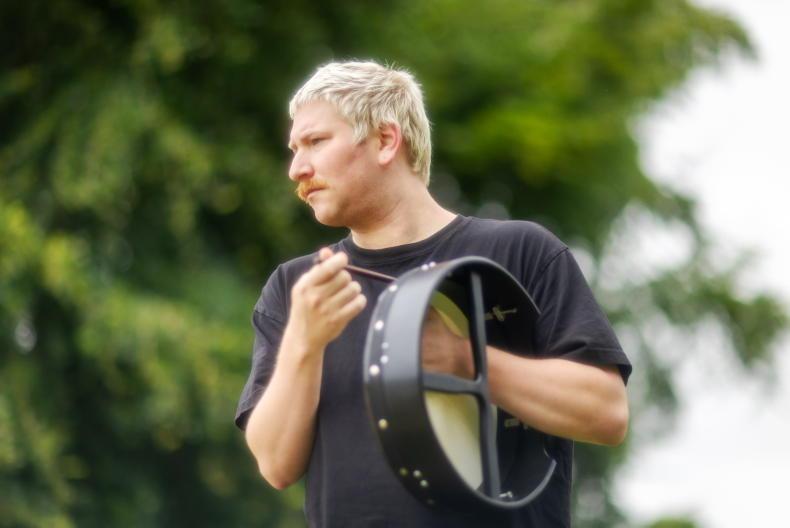After almost three years, Finbar Wright fans are looking forward to seeing the tenor from Ballinspittle, Co Cork, return to the stage for a night of music and camaraderie. From starting out at the Triskel Arts Centre in Cork city, to his annual Nollaig na mBan concert in the Opera House on 6 January, Irish Country Living discovered the loyal following Finbar has built up over the years and recently sat down with him to hear what kept him going through the pandemic.
“I’ve always been a very busy person; it didn’t bother me unduly. I always find a thousand things to do every day and there are always a thousand things I want to do. In the words of Charles Dickens, I suppose ‘it was the best of times, it was the worst of times’,” he sums up.
Getting to know everybody within the 5km radius was a highlight.
“We are in a country area and we know all our neighbours much better than we did before COVID-19,” he says. “Unfortunately, in Ireland a lot of that is gone, you pass people on the road, you wave at them from the car but stopping and chatting to people doesn’t seem to happen much now. A lot of people were saying that it was a great opportunity to stop and spend quality time with their neighbours, to chat about their family and what is going on in their life.”
Living near a popular wood between Cork city and Macroom, Finbar notices that some habits people picked up during the lockdowns remain.
“People have changed their mindset. We meet more people out enjoying the countryside, the ducks and the trees. People discovered things they did not see before,” he says.
Mother’s influence
He cites a good start-off in life from his mother as crucial.
“My mother gave me a couple of things in life that I really like. The most important thing is gardening. She loved it. Late at night she would be in the garden. She had a wonderful vegetable garden. The second thing she gave me was the love of reading. The third love she gave me was chocolate which was probably the least healthy of the three!”
Discovering a pot of homemade gooseberry jam in the winter, makes the work of minding the fruit bushes in the summertime somewhat more bearable for him.

Finbar Wright is looking forward to returning to the stage on 4 February in the Watergate theatre, Kilkenny
“I love the fruit bushes, but they can be hard to keep. We have a lot of birds around here,” he says.
“The blackbirds are particular demons when it comes to blackcurrants. I hate putting the nets over them because it takes the good out of it but if you want to preserve the crop it seems to be the only way, unless you are especially vigilant and watch when they are ripe because the birds seem to know to the day when the currants are edible and when they are at their best. You go out one day and the gooseberry bush is full of fruit and then next day half of it is gone.”
He finds apples don’t seem to do too well where they are. “Not all apples do well here because we are a little high up but the Bramley seedlings do OK,” he says.
His apple nemesis? “The problem there is the bullfinch. When the buds first come out, the bullfinch could strip a branch in a minute.”
Like any endeavour with the natural world, he admits: “It all depends on the year. I have some beautiful plum trees and some years there is nothing and other years they could be laden down. That’s nature. It is wonderful – we just have to work with it.”
A formidable bird
Something else he inherited from his mother was keeping hens and always having their own eggs. The hens are free to roam around the back garden, so Finbar has had to perfect the fencing situation over the years.
“The fox is a big problem. We have a rooster with them who is formidable. We thought he died once after the fox had been in but in fact he had been playing dead. Completely. Even when I picked him up, I said, ‘Oh he’s gone’ and I put him back down. Next thing, I turned around and he disappeared. When he felt he was safe enough he lifted himself back up. They are amazing.”
They have a lot of silkies, which are an unusual breed, although they don’t enter them at the summer shows. Their docile nature and the eggs are what attracts the Wrights to this breed.
“Angela my wife looks after the baking. She thinks they are excellent. They are rich but not too big with an intense yellow yolk,” says Finbar.
Disowned
Though all his people came from Kinsale, “a beautiful love story” resulted in the start of a whole dynasty of Wrights in the area. His grandmother, Mary Kelly, happened to receive an education due to the good schools in the area and she was asked by a school inspector from Monaghan to become a governess to his children after his wife died prematurely.
Not long after arriving in Monaghan, Mary, aged 21, met Finbar’s grandfather, who was 19 at the time. Trouble brewed because this was 1900: she was Catholic and he was Presbyterian, but the romance survived. They got married in Clones and he converted to Catholicism.
They moved back to Kinsale and lived a very happy life, well into their late 80s. “The sad part was he never saw his family again; they disowned him,” reveals Finbar.
Vocal muscles, breathing exercises
These days he is practising his scales, doing breathing exercises and maybe singing a song or two while out chopping sticks. He loves variety and prefers to include a broad range from classical to folk songs in his performances. He is proud of the Irish musical heritage.
“We are blessed in this country because of the likes of Jimmy McCarthy; his songs are so poetic. I put him on a par with Leonard Cohen, they have wonderful poetry in their songs,” he says.
He looks forward to working with young professional musicians for the forthcoming dates.
“We are going to be in big trouble if we don’t look after our young musicians,” he cautions.
“It is important for our own culture that we support our own and we give them the platform and support that they need to get going.”
He credits the people who teach our children the piano, the button box and other instruments as being the foundation of it all. While he started learning the piano at the age of four, he admits he was a reluctant singer. He describes the moment he was picked from a Spanish college choir aged 16 to stand in for a tenor who did not turn up as being the point that the singing began for him.
He looks forward to visiting Spain after the Irish concerts. There may even be a concert or two with plenty of the Irish community in attendance. But first, he is looking forward to performing on home turf and reconnecting with concert regulars.
As for the silkies, who will be minding them while they are away performing?
“I have wonderful neighbours and I have a wonderful mother-in-law, Eileen Desmond – she is 90 years young!”
Upcoming
concerts
4 February, The Watergate Theatre, Kilkenny11 February, University Concert Hall, Limerick18 February, Cork Opera House25 February, Town Hall Theatre, Galway2 March, National Concert Hall, Dublin 2For further information, see https://www.finbarwright.com/
Read more
Rising rural musicians: Amy Meehan
'Belief and encouragement are the matches which light the candle of achievement'
After almost three years, Finbar Wright fans are looking forward to seeing the tenor from Ballinspittle, Co Cork, return to the stage for a night of music and camaraderie. From starting out at the Triskel Arts Centre in Cork city, to his annual Nollaig na mBan concert in the Opera House on 6 January, Irish Country Living discovered the loyal following Finbar has built up over the years and recently sat down with him to hear what kept him going through the pandemic.
“I’ve always been a very busy person; it didn’t bother me unduly. I always find a thousand things to do every day and there are always a thousand things I want to do. In the words of Charles Dickens, I suppose ‘it was the best of times, it was the worst of times’,” he sums up.
Getting to know everybody within the 5km radius was a highlight.
“We are in a country area and we know all our neighbours much better than we did before COVID-19,” he says. “Unfortunately, in Ireland a lot of that is gone, you pass people on the road, you wave at them from the car but stopping and chatting to people doesn’t seem to happen much now. A lot of people were saying that it was a great opportunity to stop and spend quality time with their neighbours, to chat about their family and what is going on in their life.”
Living near a popular wood between Cork city and Macroom, Finbar notices that some habits people picked up during the lockdowns remain.
“People have changed their mindset. We meet more people out enjoying the countryside, the ducks and the trees. People discovered things they did not see before,” he says.
Mother’s influence
He cites a good start-off in life from his mother as crucial.
“My mother gave me a couple of things in life that I really like. The most important thing is gardening. She loved it. Late at night she would be in the garden. She had a wonderful vegetable garden. The second thing she gave me was the love of reading. The third love she gave me was chocolate which was probably the least healthy of the three!”
Discovering a pot of homemade gooseberry jam in the winter, makes the work of minding the fruit bushes in the summertime somewhat more bearable for him.

Finbar Wright is looking forward to returning to the stage on 4 February in the Watergate theatre, Kilkenny
“I love the fruit bushes, but they can be hard to keep. We have a lot of birds around here,” he says.
“The blackbirds are particular demons when it comes to blackcurrants. I hate putting the nets over them because it takes the good out of it but if you want to preserve the crop it seems to be the only way, unless you are especially vigilant and watch when they are ripe because the birds seem to know to the day when the currants are edible and when they are at their best. You go out one day and the gooseberry bush is full of fruit and then next day half of it is gone.”
He finds apples don’t seem to do too well where they are. “Not all apples do well here because we are a little high up but the Bramley seedlings do OK,” he says.
His apple nemesis? “The problem there is the bullfinch. When the buds first come out, the bullfinch could strip a branch in a minute.”
Like any endeavour with the natural world, he admits: “It all depends on the year. I have some beautiful plum trees and some years there is nothing and other years they could be laden down. That’s nature. It is wonderful – we just have to work with it.”
A formidable bird
Something else he inherited from his mother was keeping hens and always having their own eggs. The hens are free to roam around the back garden, so Finbar has had to perfect the fencing situation over the years.
“The fox is a big problem. We have a rooster with them who is formidable. We thought he died once after the fox had been in but in fact he had been playing dead. Completely. Even when I picked him up, I said, ‘Oh he’s gone’ and I put him back down. Next thing, I turned around and he disappeared. When he felt he was safe enough he lifted himself back up. They are amazing.”
They have a lot of silkies, which are an unusual breed, although they don’t enter them at the summer shows. Their docile nature and the eggs are what attracts the Wrights to this breed.
“Angela my wife looks after the baking. She thinks they are excellent. They are rich but not too big with an intense yellow yolk,” says Finbar.
Disowned
Though all his people came from Kinsale, “a beautiful love story” resulted in the start of a whole dynasty of Wrights in the area. His grandmother, Mary Kelly, happened to receive an education due to the good schools in the area and she was asked by a school inspector from Monaghan to become a governess to his children after his wife died prematurely.
Not long after arriving in Monaghan, Mary, aged 21, met Finbar’s grandfather, who was 19 at the time. Trouble brewed because this was 1900: she was Catholic and he was Presbyterian, but the romance survived. They got married in Clones and he converted to Catholicism.
They moved back to Kinsale and lived a very happy life, well into their late 80s. “The sad part was he never saw his family again; they disowned him,” reveals Finbar.
Vocal muscles, breathing exercises
These days he is practising his scales, doing breathing exercises and maybe singing a song or two while out chopping sticks. He loves variety and prefers to include a broad range from classical to folk songs in his performances. He is proud of the Irish musical heritage.
“We are blessed in this country because of the likes of Jimmy McCarthy; his songs are so poetic. I put him on a par with Leonard Cohen, they have wonderful poetry in their songs,” he says.
He looks forward to working with young professional musicians for the forthcoming dates.
“We are going to be in big trouble if we don’t look after our young musicians,” he cautions.
“It is important for our own culture that we support our own and we give them the platform and support that they need to get going.”
He credits the people who teach our children the piano, the button box and other instruments as being the foundation of it all. While he started learning the piano at the age of four, he admits he was a reluctant singer. He describes the moment he was picked from a Spanish college choir aged 16 to stand in for a tenor who did not turn up as being the point that the singing began for him.
He looks forward to visiting Spain after the Irish concerts. There may even be a concert or two with plenty of the Irish community in attendance. But first, he is looking forward to performing on home turf and reconnecting with concert regulars.
As for the silkies, who will be minding them while they are away performing?
“I have wonderful neighbours and I have a wonderful mother-in-law, Eileen Desmond – she is 90 years young!”
Upcoming
concerts
4 February, The Watergate Theatre, Kilkenny11 February, University Concert Hall, Limerick18 February, Cork Opera House25 February, Town Hall Theatre, Galway2 March, National Concert Hall, Dublin 2For further information, see https://www.finbarwright.com/
Read more
Rising rural musicians: Amy Meehan
'Belief and encouragement are the matches which light the candle of achievement'











SHARING OPTIONS